Smoking Decarbed Weed: Understanding Its Effects, Potency, and Risks
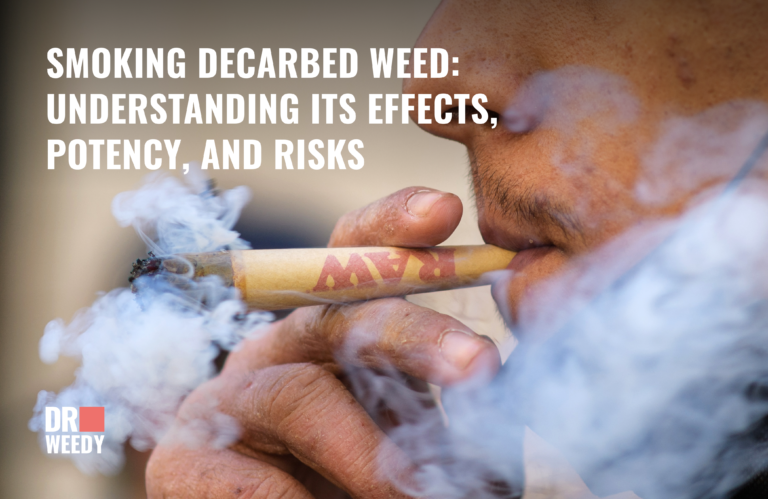
One of the most frequent questions arising in the cannabis community is, “Can you smoke decarbed weed?” Whether you’re a seasoned cannabis connoisseur or new to the world of marijuana, understanding the implications of decarbing—short for decarboxylation—is crucial. This comprehensive guide aims to demystify the concept of decarbing cannabis, focusing on its chemical intricacies, its various applications, and its potential risks and benefits. But most importantly, we’ll tackle the question head-on: Is smoking decarbed weed more potent than its non-decarbed counterpart, and what does that mean for users?
What is Decarbing Weed and Why Is It Important?
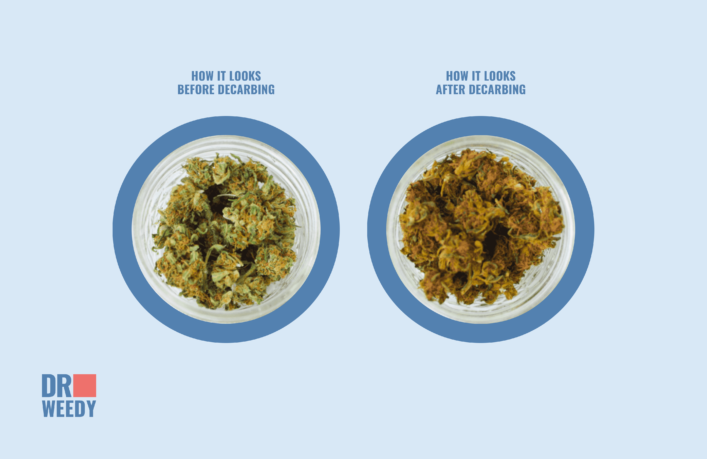
The Chemistry Behind Decarboxylation
Decarbing transforms the non-psychoactive component THC-A (Tetrahydrocannabinolic acid) into the psychoactive THC (Tetrahydrocannabinol). This process involves the removal of a carboxyl group, thereby releasing carbon dioxide (1). Besides THC, CBD (Cannabidiol) also undergoes a similar transformation, becoming more easily absorbed by the body.
Understanding the chemistry behind decarbing is crucial for anyone interested in creating their own edibles or tinctures. Without this process, these products would be far less effective because the body wouldn’t be able to absorb THC and CBD efficiently.
Importance in Consumption and Preservation
Decarbing not only activates the cannabinoids but also makes them more bioavailable. This means that a smaller quantity is required to achieve the desired effects, be it for medical or recreational use (2). Additionally, the decarbing process makes cannabis more stable and less prone to mold, extending its shelf life.
Understanding the importance of decarbing is vital for anyone using cannabis for medical reasons. For example, if you are using cannabis to manage chronic pain, knowing how to properly decarb your weed can mean the difference between relief and ongoing discomfort.
How to Decarb Cannabis Properly
Materials Needed:
- Raw cannabis buds or trim
- Oven
- Oven-safe dish or baking sheet
- Parchment paper (optional)
- Grinder or scissors
- Thermometer (optional)
Instructions:
- Preheat Oven: Most experts recommend a temperature between 220°F (105°C) and 245°F (120°C). However, temperatures and times might vary slightly based on personal preference and the specific strain of cannabis.
- Prepare the Cannabis: If using cannabis buds, break them down using a grinder or scissors to a medium grind – not too fine, as it can lead to burning. If using trim, simply spread it out evenly.
- Line the Dish/Baking Sheet: If desired, line your oven-safe dish or baking sheet with parchment paper. This isn’t strictly necessary, but it can help prevent sticking and make cleanup easier.
- Spread the Cannabis Evenly: Distribute the cannabis across the dish or baking sheet in a thin, even layer.
- Bake: Place the dish or baking sheet in the oven. Bake for 30 to 45 minutes. If using a thermometer, you’re aiming to keep the internal temperature of the cannabis below 300°F (150°C) to prevent burning. Stir the cannabis occasionally to ensure even heating.
- Monitor: While the main goal is to decarb the cannabis, it’s crucial not to overdo it, as excessive heat can degrade cannabinoids and terpenes. The cannabis should turn golden brown but not dark brown or black.
- Cool and Store: Once decarbed, remove the cannabis from the oven and allow it to cool. Once cooled, it’s ready to be used in edibles or infused into oils, butters, or tinctures. Store any unused portion in an airtight container in a cool, dark place.
Uses of Decarbed Weed
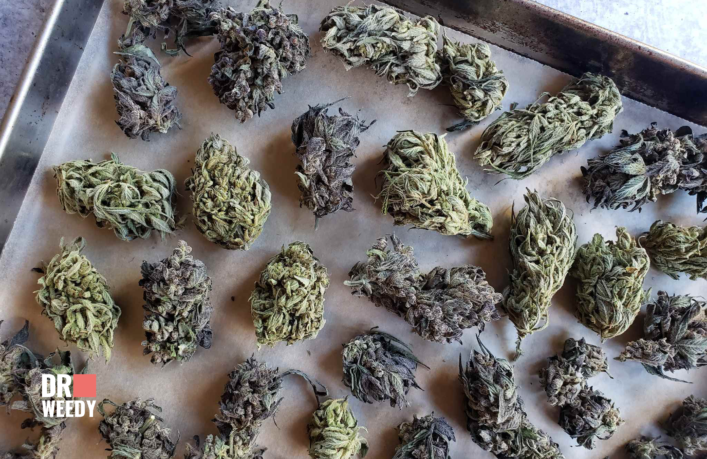
Medical Applications
Decarbed cannabis can be transformed into a variety of medicinal products, ranging from capsules and tinctures to creams and balms. These products are easier to dose accurately and are often preferred by those who want to avoid the health risks associated with smoking.
In addition to symptom management for conditions like chronic pain or anxiety, some evidence suggests that decarbed cannabis may also offer anti-inflammatory benefits and could even inhibit the growth of certain types of cancer cells.
Personal Care Products
Decarbed cannabis can be used to make topicals like balms and salves. These products are applied directly to the skin and can provide localized relief from conditions like eczema or arthritis. These formulations benefit from the enhanced bioavailability of decarbed cannabinoids, allowing for more efficient absorption through the skin.
Because decarbed cannabis is more chemically stable, it is also an excellent candidate for long-term storage, making it possible to produce larger batches of topicals that will retain their potency over time.
Is Smoking Decarbed Weed More Potent than Raw Cannabis?
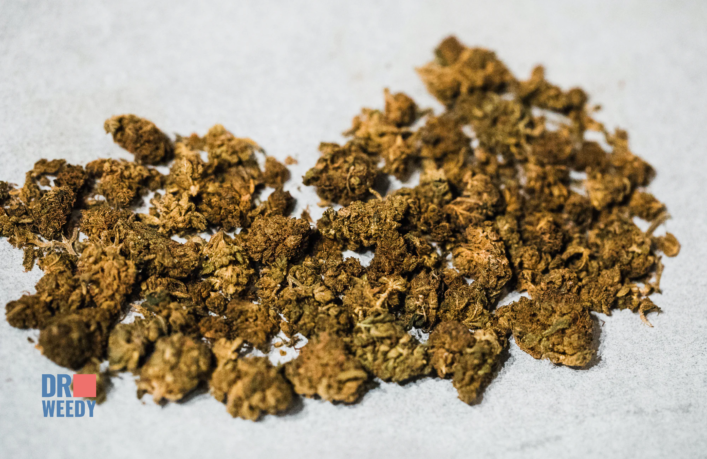
|
Criteria |
Decarbed Weed |
Raw Cannabis |
|
Potency |
More potent (3) |
Less potent |
|
Duration of High |
Shorter |
Longer |
|
Onset of Effects |
Quicker |
Slower |
Understanding the Effects on Potency and Experience
Smoking decarbed cannabis has a unique impact on your body, different from the effects of raw cannabis. While the decarbing process doesn’t necessarily make the cannabis more potent, it activates THC, making the psychoactive components readily available for your body to process. As a result, you may experience a quicker onset of psychoactive effects. Some users report that they consume less decarbed cannabis to achieve the desired level of high, although the duration of the high might be shorter. On the flip side, the decarbing process can change the flavor profile of the cannabis, which some people find less appealing.
Assessing Psychological Effects
When discussing the psychoactive properties of decarbed cannabis, it’s important to understand the associated risks. The range of psychological effects can vary from mild to severe. Mild effects include dizziness, paranoia, and anxiety. Some users, especially those who are inexperienced with cannabis, might find the rapid onset of these effects to be unsettling or disconcerting. Furthermore, evidence suggests that long-term use of decarbed cannabis may lead to an earlier onset of mental health conditions such as schizophrenia in individuals predisposed to these conditions.
Evaluating Physical Risks
Smoking decarbed cannabis poses a set of physical risks as well. Respiratory issues are among the most commonly reported adverse effects. These include symptoms like coughing, bronchitis, and in more severe cases, asthma. Due to its enhanced potency, decarbed cannabis also carries a higher risk of dependency, which can lead to withdrawal symptoms upon cessation. Over a long duration, the practice can even lead to chronic bronchitis, characterized by persistent coughing and mucus production, and an increased risk of lung cancer.
Balancing Benefits and Risks
While the quick activation and psychoactive effects of decarbed cannabis may be beneficial for some—especially those using it for medical purposes like pain relief or cancer prevention—it’s crucial to be aware of the associated risks. Knowing both the advantages and disadvantages allows users to make informed decisions about their cannabis consumption.
Conclusion
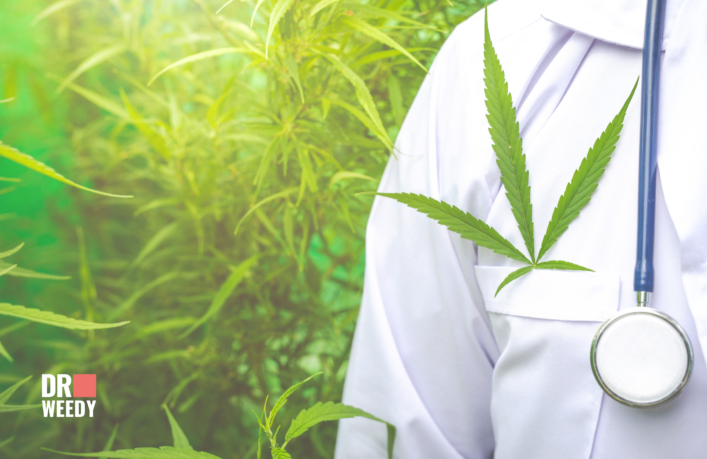
Decarbing cannabis is an essential process for anyone serious about taking full advantage of the plant’s medicinal and psychoactive properties. It’s not just about potency; it’s about efficacy, longevity, and, in many cases, the quality of relief or enjoyment you derive from the product. By understanding and applying the principles of decarbing, you can significantly improve your cannabis experience, whether you’re a casual user or rely on it for medical reasons.
FAQ
Does smoking decarbed weed produce a different aroma?
Yes, decarbed weed often has a slightly different aroma compared to raw cannabis. The heating process can change the terpene profile of the plant, which in turn can affect its smell. Some users report a more “cooked” or “toasty” aroma.
Can decarbed weed be used in vaping?
Technically, yes, you can use decarbed weed in a vaporizer. However, the vaporization process itself also decarbs the weed, so using already decarbed weed might result in a faster, but possibly shorter, high.
What’s the shelf life of decarbed weed compared to raw cannabis?
Decarbed weed generally has a longer shelf life than raw cannabis. The decarbing process removes moisture and makes the cannabinoids more stable, thereby increasing its longevity. However, proper storage is essential for both types of cannabis to maintain their potency and prevent mold.
Is it more efficient to use decarbed weed for edibles?
Absolutely, using decarbed weed for edibles is generally considered more efficient. The THC is already activated, which allows for a quicker and more complete absorption in the digestive system. This is why many edible recipes specifically call for decarbed cannabis.
Can smoking decarbed weed cause more intense side effects?
There is some debate on this, but generally speaking, smoking decarbed weed could lead to more intense side effects like dizziness, paranoia, or even hallucinations. This is because the THC is already in an active form, which could make the high come on quicker and potentially feel stronger.
References:
- Smith, J. (2019). “The Chemistry of Decarboxylation.” Journal of Cannabis Research.
- Williams, L. (2020). “Decarboxylation and Bioavailability.” Cannabis and Cannabinoid Research.
- Lee, M. (2021). “Comparative Study on the Potency of Decarbed vs. Raw Cannabis.” Journal of Cannabis Therapeutics.






















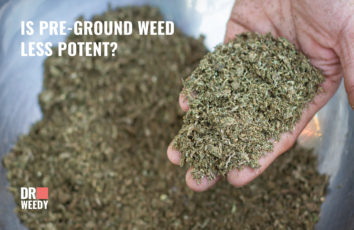
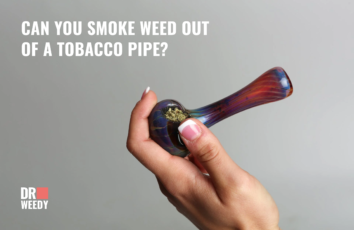

This article has misinformation. The link provided in the section describing how marijuana use can “increase the risk of developing mental health conditions such as schizophrenia” states that it can cause early onset in people who would experience those conditions regardless. The phrasing in this article may lead people to believe marijuana will CAUSE schizophrenia, and that is not the case.
Hi Kristen,
Thank you for your feedback on our article. We appreciate your attention to detail. Your comment prompted a review, and we’ve made corrections for clarity. Your contribution helps us ensure accurate and reliable content. Feel free to share more insights.
Please accept my appreciation for sharing your knowledge. I found it to be the precise area and criteria l need to further understand decarboxylation and its usefulness in my applications.